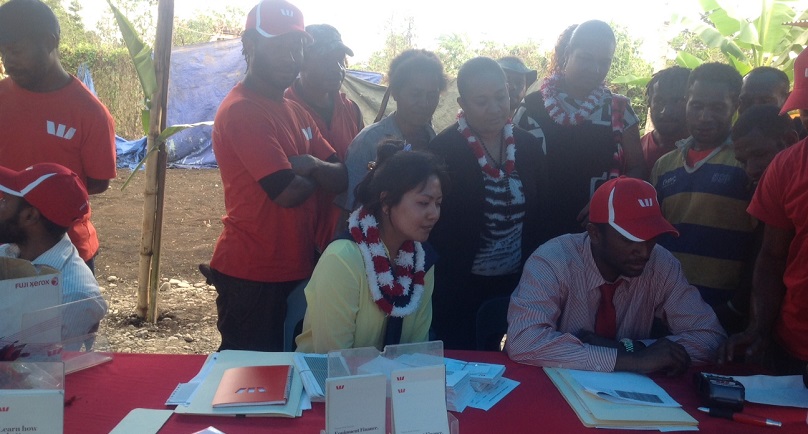by Allanah Leahy – EM TV Online
The government of Papua New Guinea, the European Union (EU) and the Pacific Financial Inclusion Programme (PFIP) have embarked on phase two of the Rural Economic Development Programme (RED), targeting the seven provinces of the Highlands region.
The government has been working closely to improve service delivery and income opportunities for Papua New Guinea’s rural population. The partnership between the EU and UN is specifically focused on increasing financial inclusion of low-income earning workers in the Highlands region, as well as improving relations amongst farmers, farmers groups, traders, transporters, processors and/or other related areas for the betterment of financial access.
Acting Secretary for the Department of National Planning and Monitoring, Ms Juliana Kubak, has acknowledged the EU and UN’s important partnership.
The $6 million Euro financial inclusion component is part of a $32 million Euro agreement with the Papua New Guinea government to support rural infrastructure, including road rehabilitation, financial inclusion and agriculture value chain development, particularly in the Highlands. This is to reduce poverty with maximum impact and enable sustainable economic growth.
Bank of PNG Governor Loi Bakani welcomed the emphasis the PNG government and partners are putting on the Highlands region, stating:
“Over 90 per cent of economically active population in the region do not have access to financial services. That is why we need to incentivise financial institutions and mobile operators to increase services here.”
Mr Bakani also pointed out the importance of consumer protection guidelines and the need for interaction from provincial governments, civil society and church groups in adequately educating low-income earners and disadvantaged consumers.
Resident Coordinator of the UN, Roy Trivedy said “with close to 20 per cent of [the] PNG population banked only in the last few years, access to financial services has become their gateway to the formal economy.
“We are actively working with partners to build the digital systems needed to help enable the majority of PNG’s population access the formal economy and share gains made through economic growth.”
PFIP aims to include one million Pacific Islanders in the formal financial sector by 2019 through spearheading policy and regulatory initiatives and facilitating access to financial services and delivery channels by strengthening financial competencies and consumer empowerment.
PFIP is a Pacific-wide programme that helps low-income households access quality and affordable financial services and financial education.
Jointly managed by the UN Capital Development Fund (UNCDF) and the United Nations Development Programme (UNDP), and funded by the Australian government, the EU and the New Zealand government, PFIP operates out of the UNDP Pacific Centre in Suva, Fiji and has offices in PNG and the Solomon Islands.


